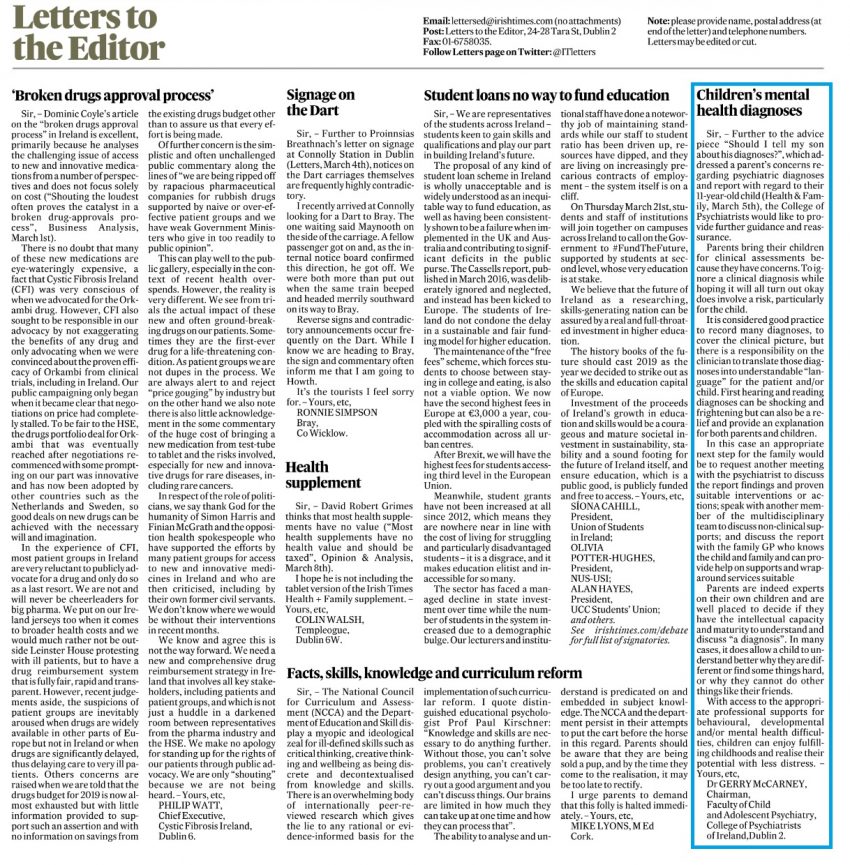Blog
Letter to the Editor: Dr Gerry McCarney ‘Children’s mental health diagnoses’
- March 11, 2019
- Category: College in the media Letters to the Editor Of interest from media Stakeholders Uncategorized

Dr Gerry McCarney, Chair of the Faculty of Child and Adolescent Psychiatry, wrote the following Letter to the Editor to the Irish Times in response to an advice piece by John Sharry entitled ‘Should I tell my son about his diagnoses?’ It was published on 11/03/2019
Sir,
Further to the advice piece “Should I tell my son about his diagnoses?”, which addressed a parent’s concerns regarding psychiatric diagnoses and report with regard to their 11-year-old child (Health & Family, March 5th), the College of Psychiatrists would like to provide further guidance and reassurance.
Parents bring their children for clinical assessments because they have concerns. To ignore a clinical diagnosis while hoping it will all turn out okay does involve a risk, particularly for the child.
It is considered good practice to record many diagnoses, to cover the clinical picture, but there is a responsibility on the clinician to translate those diagnoses into understandable “language” for the patient and/or child. First hearing and reading diagnoses can be shocking and frightening but can also be a relief and provide an explanation for both parents and children.
In this case an appropriate next step for the family would be to request another meeting with the psychiatrist to discuss the report findings and proven suitable interventions or actions; speak with another member of the multidisciplinary team to discuss non-clinical supports; and discuss the report with the family GP who knows the child and family and can provide help on supports and wraparound services suitable
Parents are indeed experts on their own children and are well placed to decide if they have the intellectual capacity and maturity to understand and discuss “a diagnosis”. In many cases, it does allow a child to understand better why they are different or find some things hard, or why they cannot do other things like their friends.
With access to the appropriate professional supports for behavioural, developmental and/or mental health difficulties, children can enjoy fulfilling childhoods and realise their potential with less distress.
Yours, etc,
Dr GERRY McCARNEY,
Consultant Child and Adolescent and Addiction Psychiatrist,
Faculty of Child and Adolescent Psychiatry,
College of Psychiatrists of Ireland,
Dublin 2

